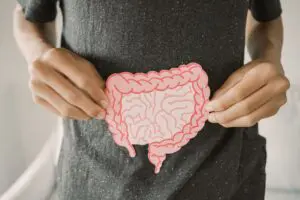How your microbiome plays a role in your weight
By Ross Pelton, RPh, PhD, CCN
Scientific Director, Essential Formulas
This year, researchers at Massachusetts General Hospital are planning to conduct a ground-breaking study to determine if fecal microbial transplants (FMT) can be used as an effective treatment for obesity in humans. The researchers plan to transfer intestinal bacteria using a “stool transplant” from a healthy, lean people into individuals with obesity. Twenty-four obese subjects will be divided into two groups. In this 24-week, double-blind placebo-controlled study, participants with receive FMT capsules (prepared per FDA-approved procedures) or look-alike placebo capsules. The study will assess changes in weight, insulin sensitivity, and overall body composition.
The DISCORDANT TWIN STUDY, which was published in 2013, was one of the first studies to establish a relationship between intestinal bacteria and obesity. For this study, researchers recruited identical twins who were no longer similar in terms of their weight. These identical twins had the same genetics, but due to differences in diet, nutrition, lifestyle, stress and exposure to environmental toxins eventually resulted in one twin remaining thin throughout his or her lifetime, while the other twin gained weight and became obese.i
In this study, researchers divided mice into two groups. One group of mice was administered bacteria from the intestinal tract of the lean twin while mice in the second group received bacteria from the intestinal tract of the obese twin. The mice that received intestinal bacteria from the lean twin remained lean. However, the mice that were given bacteria from the obese twin quickly began to put on weight and also became obese.
Fecal microbial transplants have been used in the treatment of recurrent antibiotic-resistant Clostridium difficile infections with an amazing success rate of between 80% to 90%.ii However, careful screening of donors for FMTs is important. In one case, a woman with recurring Clostridium difficile underwent a FMT using a fecal sample from her daughter who was overweight, but otherwise healthy. After the transplant, the woman was cured of her infection, but she quickly began to gain weight, even though she continued to consume her regular diet.iii The moral of the story: choose your FMT donor carefully.
Fecal microbial transplants appear to provide some significant and effective new treatment options for certain types of antibiotic-resistant infections. However, I believe people wanting fecal microbial transplants should seek a hospital or physician who has experience in screening donors and also in processing and preparing the freeze-dried oral FMT capsules or FMT rectal enemas.






